- Home
- Samuel Beckett
Selected Poems 1930-1988 Page 10
Selected Poems 1930-1988 Read online
Page 10
‘mirlitonnades’. Poèmes, suivi de mirlitonnades (Minuit, 1978). The make-up of the sequence varies from edition to edition of Beckett’s poetry; this printing follows the original text. After this publication Beckett continued to write new poems in French and English in the sottisier notebook. Manuscripts in Trinity College, Dublin describe poems written in the late 1980s as ‘mirlitonnades’, making a case for all his short late poems to be seen as implicit additions to the sequence. A mirliton is a kazoo, and mirlitonnades doggerel verse in which to wrap the instrument. The Mare-Chaudron and rue de Courtablon are places in Ussy, whither Beckett retreated from Paris and did much of his writing in later life. The dark sister of ‘noire sœur’ is Atropos (cf. note to ‘être là sans mâchoires sans dents’). The hare of ‘à bout de songes un bouquin’ derives from La Fontaine’s ‘Le Lièvre et les grenouilles’.
‘one dead of night’. Composed June 1977; first published Poetry Review 86:3 1996.
‘there’, ‘again gone’. Composed 1981; first published (together with a third, ‘head on hands’) under the single title ‘pss’ in New Departures 14 (1982), but recourse to the sottisier notebook clarifies that they are separate poems. ‘there’ answers Petruchio’s question in The Taming of the Shrew: ‘Where is the life that late I led?’
‘bail bail till better/founder’. Composed 11 April 1981 (UoR sottisier notebook).
‘Là’. Composed 19 January 1987; first published Journal of Beckett Studies [JOBS] 1.1 and 2 1992, where it carried a dedication ‘For Jim’ (James Knowlson).
‘Go where never before’. Composed 24 January 1987; English version of ‘Là’, first published together in JOBS 1.1 and 2 1992.
‘Brief Dream’. Composed November 1987; first published JOBS 1.1 and 2 1992.
Comment dire/what is the word. French text dated 29 October 1988, English text 23 April 1989. Composed 1988; first published Libération 1 June 1989 (‘Comment dire’) and Sunday Correspondent 31 December 1989 (‘what is the word’). ‘what is the word’ was Beckett’s last piece of writing.
Translations
‘Delta’. This Quarter 2.4 April–May–June 1930. Eugenio Montale (1896–1981), Italian poet, Nobel Prize for Literature 1975.
‘Louis Armstrong’. From Nancy Cunard’s Negro, An Anthology (1934). Ernst Moerman (1897–1944), Belgian author and film director.
‘Drunken Boat’. Whiteknights Press (Reading, 1976). Arthur Rimbaud (1854–1891), French poet. Beckett offered the translation to This Quarter in 1932, but the journal ceased publication shortly afterwards. The text was believed lost for decades before resurfacing in 1975; it was first published in a limited edition the following year.
‘Lady Love’, ‘Out of Sight in the Direction of My Body’. First published in Thorns of Thunder: Selected Poems of Paul Éluard (London, 1936). Paul Éluard (1895–1952), French surrealist poet.
‘Zone’. Transition Fifty 6 (October 1950), reprinted by Dolmen Press (1972). Guillaume Apollinaire (1880–1918), Polish-born French surrealist poet.
‘Long after Chamfort’. First published The Blue Guitar December 1975 (maxims 1–6), Hermathena CXV 1973 (number 6), and Collected Poems (numbers 7 and 8). Nicolas-Sébastien Chamfort (1741–1794), mordant French aphorist. The last of the eight maxims derives not from Chamfort but from Pascal.
‘Tailpiece’. From Watt, and placed last in all previous editions of Beckett’s poetry.
About the Author
Samuel Beckett was born in Dublin in 1906. He was educated at Portora Royal School and Trinity College, Dublin, where he graduated in 1927. His made his poetry debut in 1930 with Whoroscope and followed it with essays and two novels before World War Two. He wrote one of his most famous plays, Waiting for Godot, in 1949 but it wasn’t published in English until 1954. Waiting for Godot brought Beckett international fame and firmly established him as a leading figure in the Theatre of the Absurd. He received the Nobel Prize for Literature in 1961. Beckett continued to write prolifically for radio, TV and the theatre until his death in 1989.
About the Editor
David Wheatley teaches modern literature at the University of Hull. He has published three collections of poetry with Gallery Press.
Titles in the Samuel Beckett series
ENDGAME
Preface by Rónán McDonald
COMPANY/ILL SEEN ILL SAID/WORSTWARD HO/STIRRINGS STILL
Edited by Dirk Van Hulle
KRAPP’S LAST TAPE AND OTHER SHORTER PLAYS
Preface by S. E. Gontarski
MURPHY
Edited by J. C. C. Mays
WATT
Edited by C. J. Ackerley
ALL THAT FALL AND OTHER PLAYS FOR RADIO AND SCREEN
Preface and Notes by Everett Frost
MOLLOY
Edited by Shane Weller
HOW IT IS
Edited by Magessa O’Reilly
THE EXPELLED/THE CALMATIVE/THE END/FIRST LOVE
Edited by Christopher Ricks
SELECTED POEMS 1930–1989
Edited by David Wheatley
Forthcoming titles
WAITING FOR GODOT
Preface by Mary Bryden
MORE PRICKS THAN KICKS
Edited by Cassandra Nelson
MALONE DIES
Edited by Peter Boxall
THE UNNAMABLE
Edited by Steven Connor
HAPPY DAYS
Preface by James Knowlson
TEXTS FOR NOTHING/RESIDUA/FIZZLES: SHORTER FICTION 1950–1981
Edited by Mark Nixon
MERCIER AND CAMIER
Edited by Sean Kennedy
Copyright
Collected Poems in English and French published in 1977 by John Calder
This edition first published in 2009
by Faber and Faber Ltd
Bloomsbury House
74–77 Great Russell Street
London WC1B 3DA
This ebook edition first published in 2012
All rights reserved
© Samuel Beckett, 1957, 1964
© The Estate of Samuel Beckett, 2009
Preface © David Wheatley, 2009
The right of Samuel Beckett to be identified as author of this work has been asserted in accordance with Section 77 of the Copyright, Designs and Patents Act 1988
The right of David Wheatley to be identified as editor of this work has been asserted in accordance with Section 77 of the Copyright, Designs and Patents Act 1988
This ebook is copyright material and must not be copied, reproduced, transferred, distributed, leased, licensed or publicly performed or used in any way except as specifically permitted in writing by the publishers, as allowed under the terms and conditions under which it was purchased or as strictly permitted by applicable copyright law. Any unauthorised distribution or use of this text may be a direct infringement of the author’s and publisher’s rights, and those responsible may be liable in law accordingly
ISBN 978–0–571–26196–3

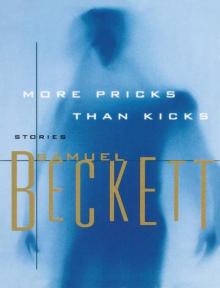 More Pricks Than Kicks
More Pricks Than Kicks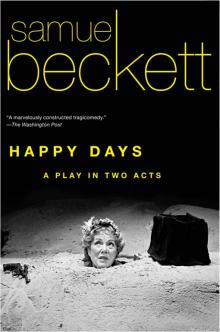 Happy Days
Happy Days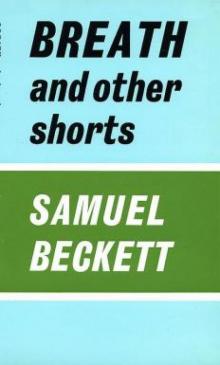 Breath, and Other Shorts
Breath, and Other Shorts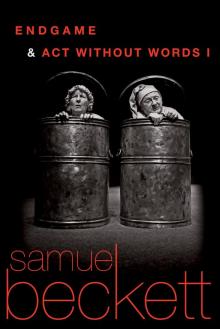 Endgame & Act Without Words
Endgame & Act Without Words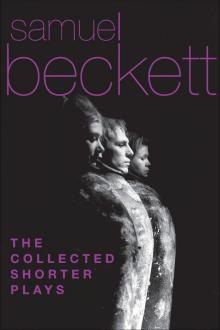 The Collected Shorter Plays of Samuel Beckett
The Collected Shorter Plays of Samuel Beckett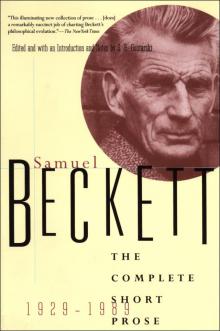 The Complete Short Prose, 1929-1989
The Complete Short Prose, 1929-1989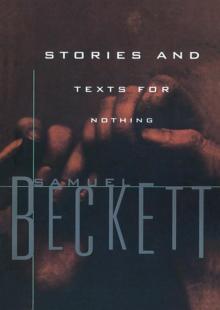 Stories and Texts for Nothing
Stories and Texts for Nothing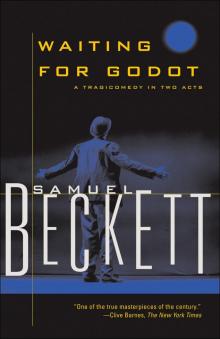 Waiting for Godot
Waiting for Godot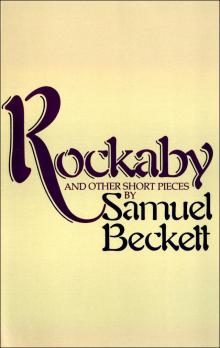 Rockaby and Other Short Pieces
Rockaby and Other Short Pieces First Love and Other Shorts
First Love and Other Shorts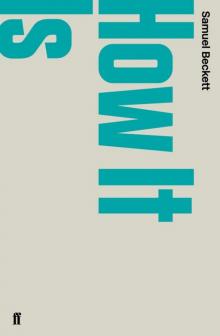 How It Is
How It Is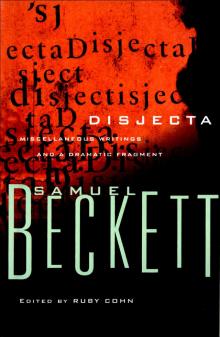 Disjecta: Miscellaneous Writings and a Dramatic Fragment
Disjecta: Miscellaneous Writings and a Dramatic Fragment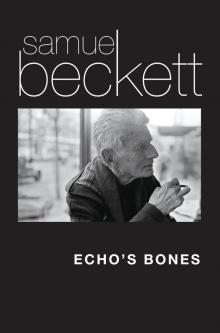 Echo's Bones
Echo's Bones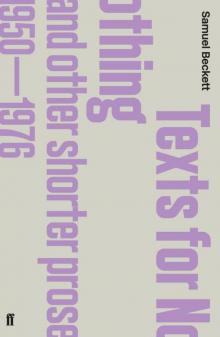 Texts for Nothing and Other Shorter Prose 1950-1976
Texts for Nothing and Other Shorter Prose 1950-1976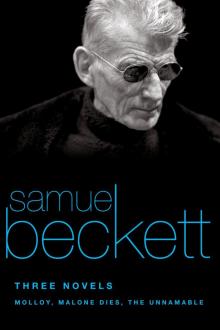 Three Novels
Three Novels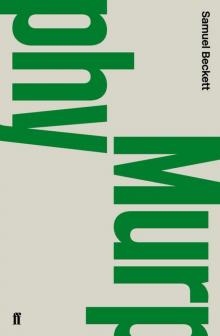 Murphy
Murphy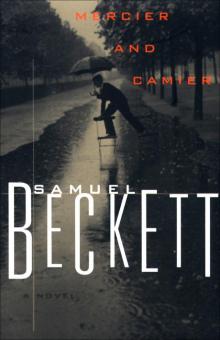 Mercier and Camier
Mercier and Camier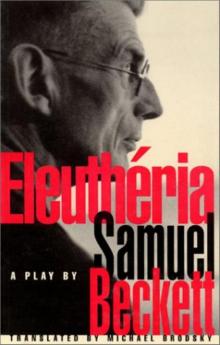 Eleuthéria
Eleuthéria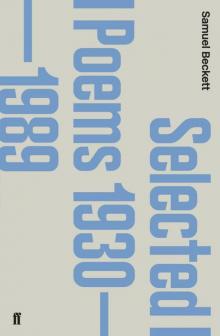 Selected Poems 1930-1988
Selected Poems 1930-1988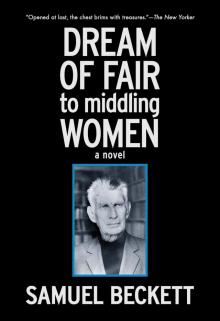 Dream of Fair to Middling Women
Dream of Fair to Middling Women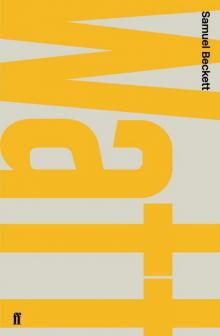 Watt
Watt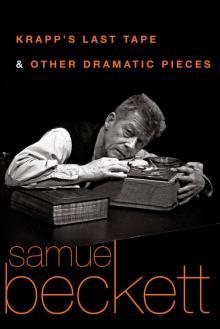 Krapp's Last Tape and Other Dramatic Pieces
Krapp's Last Tape and Other Dramatic Pieces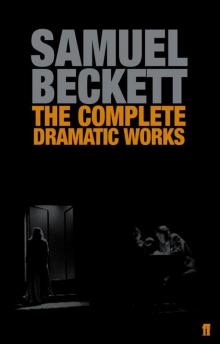 The Complete Dramatic Works of Samuel Beckett
The Complete Dramatic Works of Samuel Beckett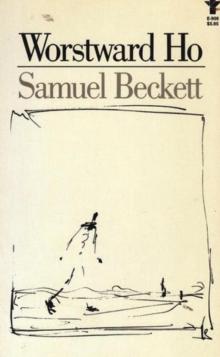 Worstward Ho
Worstward Ho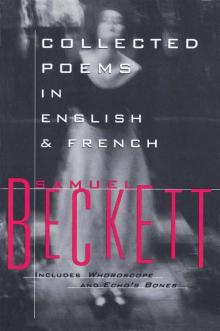 Collected Poems in English and French
Collected Poems in English and French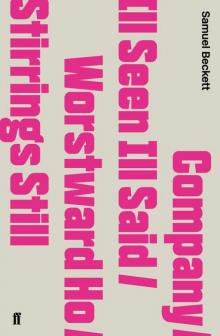 Company / Ill Seen Ill Said / Worstward Ho / Stirrings Still
Company / Ill Seen Ill Said / Worstward Ho / Stirrings Still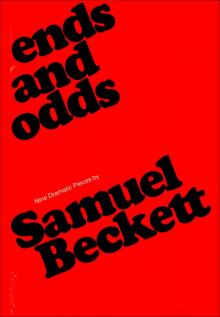 Ends and Odds
Ends and Odds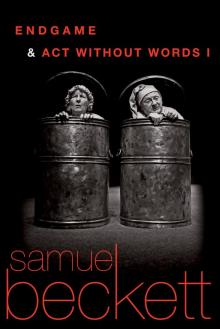 Endgame Act Without Words I
Endgame Act Without Words I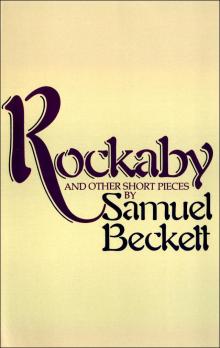 Rockabye and Other Short Pieces
Rockabye and Other Short Pieces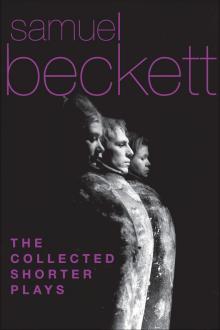 The Collected Shorter Plays
The Collected Shorter Plays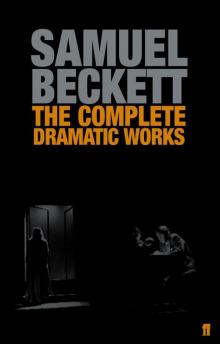 The Complete Dramatic Works
The Complete Dramatic Works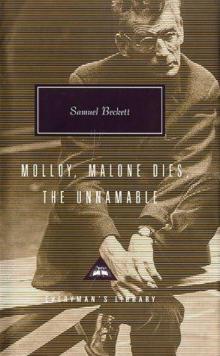 Three Novels: Malloy, Malone Dies, The Unnamable
Three Novels: Malloy, Malone Dies, The Unnamable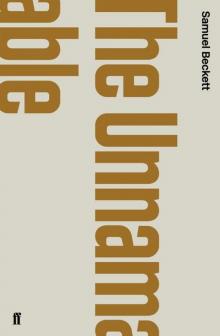 The Unnamable
The Unnamable